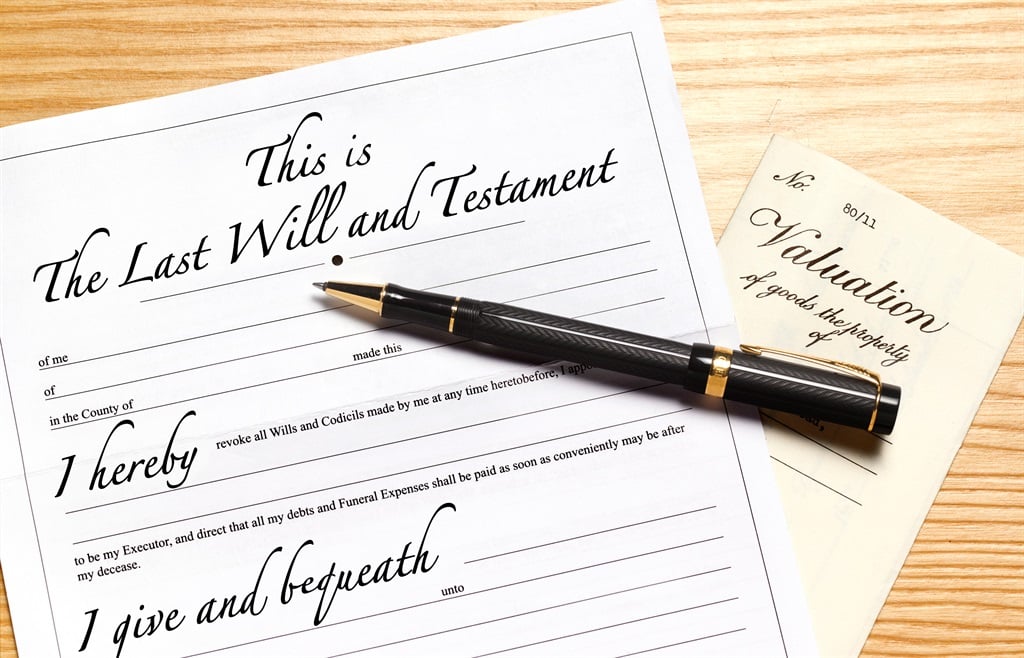
Statistics show that less than 15% of South Africans die with a valid will. stacey louchos Explains how intestate inheritance works.
While it would be ideal to have a valid will as a solid plan for how your loved ones will be cared for after you are gone, many people do not have a valid will or some provision for the welfare of their dependents. dies without having one.
A report based on statistics obtained from the Chief Justice of the High Court of South Africa in 2022 found that less than 15% of South Africans have a will in place at the time of their death.
This doesn't mean there aren't mechanisms in our law to ensure your loved one's well-being is protected even if there is no Will. However, it is important to understand the laws governing intestate succession so that you can make informed decisions about estate planning.
How will my estate be distributed if I don't have a valid will?
If you do not have a valid will, your estate will be distributed to your next of kin in a predetermined order as set out in the Intestate Succession Act. Although this law can be quite technical regarding the exact order of inheritance, the basic principles of inheritance apply as follows:
- First, spouses and children inherit equally. If there is no spouse, the children inherit equally. In terms of inheritance, adopted children are treated the same as biological children.
If you have no surviving spouse or children when you die, your estate will be divided equally between your parents.
If one of your parents dies before you, their inheritance is divided equally among their surviving children.
If there are no surviving parents, siblings, spouse, or children, the estate passes to the closest blood relatives. In this case, the grandparents usually divide the amount equally.
Common pitfalls in intestate inheritance
Although the order of intestate succession seems simple and fair, clearly certain loved ones can easily miss out on inheritance. A common example is if you and your partner are living together but are not legally married.
Intestacy does not give your relationship any legal status. This means your partner stands to inherit nothing from your estate. They may be entitled to maintenance fees in response to a lengthy lawsuit, but they essentially have no rights to your property.
Problems also arise when a deceased person intestates along with a spouse and several children. According to intestacy law, the deceased's spouse and children are entitled to an equal share in the deceased's estate.
However, without proper planning, the surviving spouse may have to sell certain assets to pay for the child's inheritance. Minor children may have their assets held by the state in a guardian fund, but it may be difficult for the minor to access that fund until the minor reaches the age of majority (18 years of age in South Africa) .
We often see disputes where children are given an equal share of the inheritance without any guidelines as to how certain sentimental items should be divided. If the beneficiaries cannot agree on who gets family jewelry or other items of sentimental value, and the executor cannot agree on the distribution, the items can be sold and the proceeds inherited. You may have no choice but to split it evenly between people.
As is clear from the above, not having a will can result in rifts between family members. Additionally, a lack of estate planning can compound the tragedy of loss and leave those left behind in a financially vulnerable position.
By preparing even a simple will and planning ahead, you can ensure that your estate covers any cash shortfalls, unpaid taxes or inheritance taxes. This will ensure your loved one receives a fair share of the inherited property.
Additionally, the estate liquidation process is streamlined, allowing for faster and more efficient distributions. Even better, it reduces family disputes that can make estate administration take longer than necessary.
Stacey Luchos is Managing Director of Bannister Trust (Pty) Ltd, an affiliate of tax firm Hobbs Sinclair.
newsArticle 24 encourages freedom of speech and the expression of diverse opinions. The views of columnists published on News24 are therefore their own and do not necessarily represent the views of News24.

